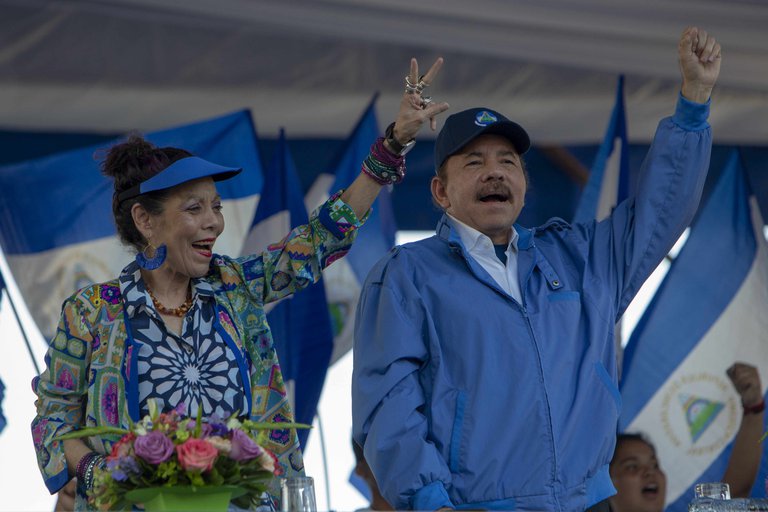RIO DE JANEIRO, BRAZIL – The Nicaraguan Parliament, controlled by Daniel Ortega, on Monday, December 21st, passed by a large majority a law preventing opposition candidates from running in the 2021 elections. Almost in parallel, the United States announced new sanctions against three Ortega officials.
In an extraordinary session, the 70 Sandinista deputies passed the so-called “Law in Defense of the Rights of the People to Independence, Sovereignty and Self-Determination for Peace”. Fourteen deputies of the Constitutionalist Liberal Party (PLC) voted against it for considering it “unconstitutional”.

The controversial law, passed as a matter of urgency, prevents those whom the government considers “coup-plotters” or “terrorists” from running for public office and popular election, despite the fact that the current constitution establishes full political participation rights for all citizens with no exception.
According to the law, those who “lead or finance a coup d’état…, incite foreign interference, call for military interventions…, propose or manage economic blockades or demand, praise and applaud the imposition of sanctions against the State of Nicaragua and its citizens” will not be allowed to participate in the 2021 general elections.
All of them “will be traitors to the homeland, and therefore will not be eligible for popularly elected positions,” the passed text states. The Criminal Code punishes the crimes of “terrorism” and “treason” with up to 15 years imprisonment.
Ortega has described as “coup plotters” and “terrorists” opponents who took part in the social protests that exploded in 2018 and that left at least 328 dead, hundreds arrested and about 100,000 exiled due to state repression, according to data from the Inter-American Commission on Human Rights (IACHR).
The controversial Sandinista law was rejected by opposition groups Civic Alliance and National Blue and White Unity, whose leaders are working on an electoral reform plan for the 2021 elections.
The director of the opposition Civic Alliance party, Juan Sebastián Chamorro, said that Ortega should be “the first one restrained” by the new law. “The one who should be subject to a law of this nature is Daniel Ortega, for all the human rights violations he has committed and the harm he has caused,” Chamorro said in a message on his social media.
For his part, José Miguel Vivanco, Director for the Americas at Human Rights Watch, cautioned on Sunday that the bill – still in draft form at the time – “openly violates the human right to political participation and will help consolidate the Ortega-Murillo dictatorship”.
Meanwhile, the U.S. Treasury Department announced on Monday in Washington new sanctions against officials of the Ortega government. The targets this time are the vice president of the Supreme Court of Justice, Marvin Aguilar; Sandinista deputy Wálmaro Gutiérrez and police chief Fidel Domínguez, who is accused of leading the repression against opponents in the department of Leon, in the west of the country.
According to the Treasury Department’s Office of Foreign Assets Control (OFAC), these officials “are responsible for co-opting judicial or financial means to support the Ortega regime in the systematic identification, intimidation and punishment of the political opposition”.
The number of Sandinista officials sanctioned by the United States since 2017 on charges of corruption and human rights violations now totals 27.
“Today the United States sanctioned three members of the Nicaraguan government who have allowed corruption and human rights abuses by the Ortega regime. We support the struggle of the people of Nicaragua to restore democracy,” Secretary of State Mike Pompeo said on Twitter, commenting on the OFAC sanctions.

